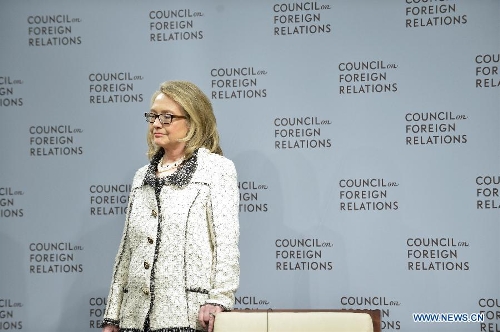New US cabinet, old battle of values

Hillary Clinton bids farewell to the State Department today, with John Kerry succeeding her as US Secretary of State. In President Barack Obama's second-term cabinet, Chuck Hagel will take the position of Secretary of Defense while John Brennan has been nominated to lead CIA. These senior politicians are regarded as being relatively moderate on China due to their previous performances.
But will these new faces lead to a moderate policy toward China? It's hard to say. Leaders do have an influence on bilateral relations, but momentum is more important. Clinton dealt with China with a Cold War mentality, which deepened mutual strategic distrust. But on the other side, the negative effects she had on Sino-US relations are limited.
A number of entangled interests characterize Sino-US relations. The bilateral relationship is filled with ups and downs, but also has a strong consistency. There will not be more policy changes from this cabinet than from their predecessors.
US cabinet changes now have less of an influence on China. One reason is that China has become strong and has a bigger say in bilateral relations.
Clinton promoted smart diplomacy against China during her tenure. But the most prominent result is not any alliance strengthened by the US, but China's greater endurance in the face of various troubles. Chinese people could hardly imagine having a dispute with various parties simultaneously in the South China Sea or East China Sea a few years ago, but now we see that it's nothing serious. China has accumulated experience in managing territorial disputes.
We had been worried that the US would contain China's development. However, the years of Clinton's diplomacy made us realize that the US had limited resources to do so. Putting the Sino-US relations in a confrontational scenario, values may be the sharpest offensive weapon of the US. In this respect it has rich resources for penetrating China. Furthermore, the Chinese public is widely receptive to these values. A growing number of people are welcoming the export of US values to China. Many of the ideas that originated from the West have taken root here.
Obama's new cabinet may adopt a more practical China policy and try to reduce provocations against China, but in the ideological sphere, the US won't retreat. It's an irresistible impulse for the US to make use of its cultural and political advantages to block China's rise. Ideology and values are the biggest advantages of the West. But if China is strong and firm enough to resist the pressure they put on China, the competitive situation between China and the West will be different.
Therefore, China's own attitude is more important than the attitude of Obama's new cabinet. In the future, Sino-US relations won't only be shaped by the two governments, but also by communications and interactions between Chinese and American societies.